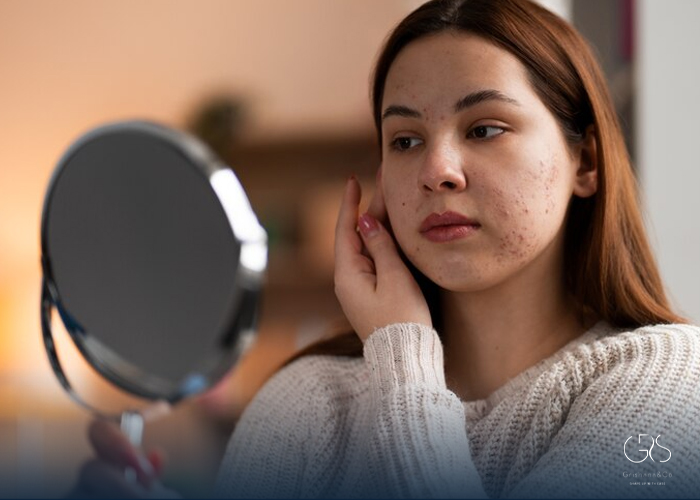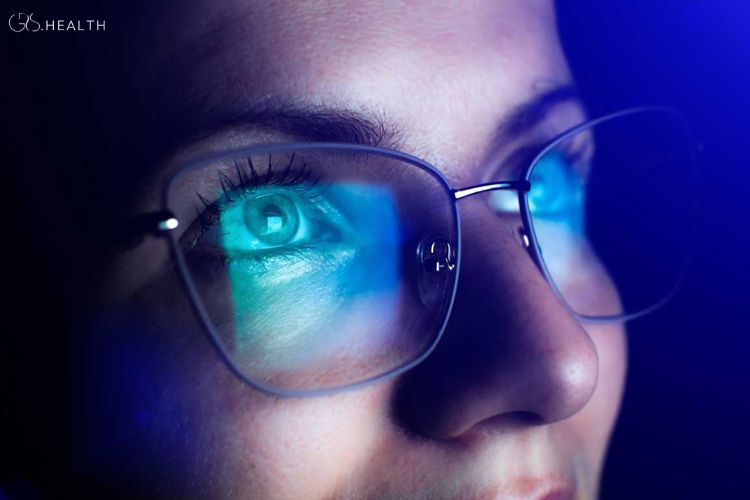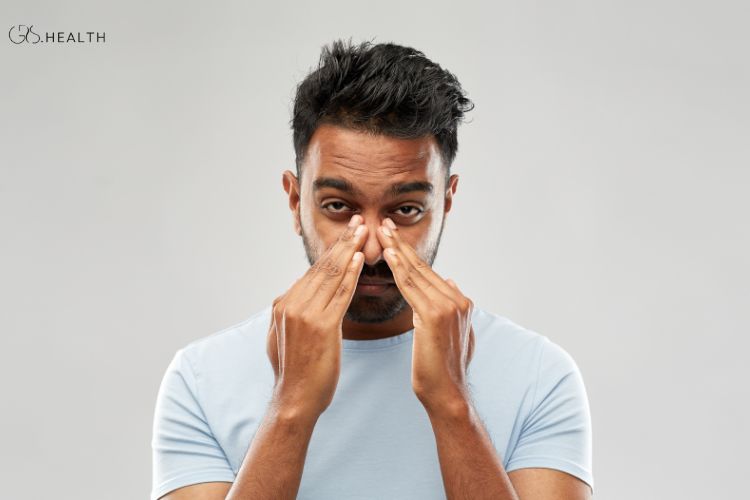Acne, a common skin condition affecting individuals of all ages, can present in multiple forms, with inflammatory acne overview being a particularly severe variant. This analysis will delve into the intricacies of inflammatory acne overview, detailing its types, symptoms, causes, risk factors, diagnosis, treatments, prevention strategies, potential complications, and practical guidelines for effective management.
Types of Inflammatory Acne
1.Papules: These are small, red, tender bumps that signal inflammation in the skin, caused by the body’s immune response to acne-causing bacteria.
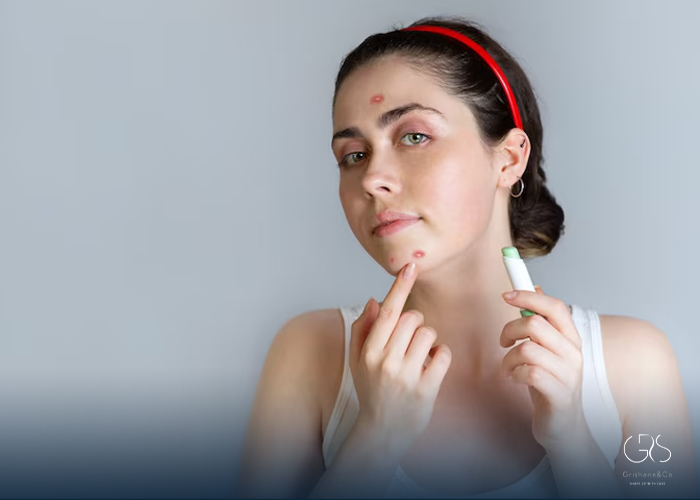
2.Pustules: Characterized by pimples with a white or yellow center due to the accumulation of pus, pustules can be painful and lead to scarring if not treated correctly.
3.Nodules: Large, solid, and painful lumps beneath the skin’s surface, nodules can be challenging to treat and often require professional intervention to prevent scarring.
4.Cysts: Deep, pus-filled lesions that develop deep within the skin, cysts are the most severe form of inflammatory acne and can result in long-term scarring if not managed promptly.
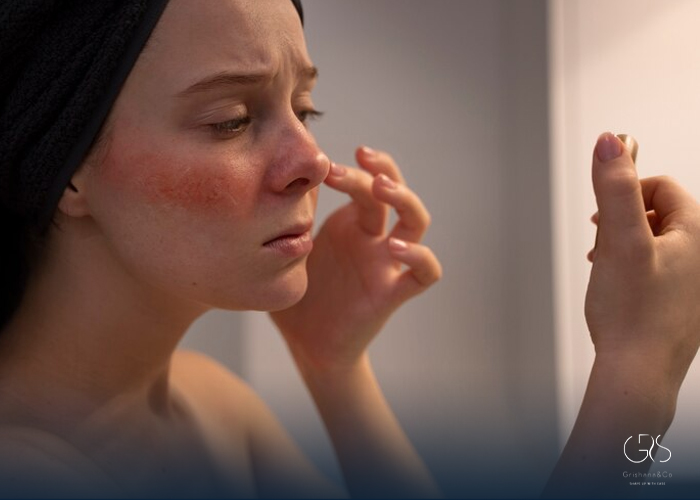
Symptoms of Inflammatory Acne
- Redness, Swelling, and Tenderness: Inflammatory acne is characterized by the presence of inflamed, red areas on the skin that are often painful to touch.
- Formation of Painful Bumps: The development of painful bumps, often filled with pus, can be a common symptom of inflammatory acne, signaling an active inflammatory response in the skin.
- Potential Scarring: Severe inflammatory acne lesions can lead to scarring if not treated appropriately, emphasizing the importance of timely intervention and management.
What Causes Inflammatory Acne?
Inflammatory acne is a multi-faceted skin condition influenced by various factors:
- Increased Sebum Production: Excessive oil production can clog pores, leading to the development of inflammatory acne lesions.(To learn more about Understanding Sebum please refer to this article)
- Bacterial Growth: Propionibacterium acnes, a type of bacteria residing in hair follicles, can trigger inflammation and worsen acne symptoms.
- Hormonal Fluctuations: Changes in hormone levels, especially during puberty, menstrual cycles, and pregnancy, can contribute to the development of inflammatory acne.
- Genetic Predisposition: Family history and genetic factors can play a role in one’s susceptibility to inflammatory acne.
Risk Factors
Several factors can increase the risk of developing inflammatory acne:
- Hormonal Imbalances: Hormonal fluctuations, such as those experienced during puberty, menstruation, or hormonal disorders, can trigger or exacerbate inflammatory acne.
- Diet: Consumption of high-glycemic-index foods, dairy products, or certain trigger foods can contribute to acne development.

- Skin Care Products: Using comedogenic or harsh skincare products can irritate the skin and exacerbate inflammatory acne.
- Medications: Some medications, like corticosteroids, hormonal medications, or certain treatments, may cause acne as a side effect.
Diagnosis and Treatment
- Diagnosis: Medical professionals diagnose inflammatory acne by examining the skin, identifying the types of lesions present, and assessing the severity of the condition.
- Treatment:
- Over-the-Counter Acne Treatments: Products containing ingredients like benzoyl peroxide or salicylic acid can help reduce inflammation, unclog pores, and manage mild to moderate inflammatory acne.
- Prescription Acne Treatments: Dermatologists may prescribe topical or oral medications, such as retinoids, antibiotics, or hormonal therapies, to address severe inflammatory acne cases.
- Light Therapy: Light-based treatments, like blue light therapy or photodynamic therapy, can help reduce inflammation, kill acne-causing bacteria, and promote skin healing.
- Cortisone Shots: In severe cases, cortisone injections directly into the acne lesions can rapidly reduce inflammation and prevent scarring.
How To Prevent Inflammatory Acne
- Maintaining Good Skincare Habits: Consistent cleansing, exfoliation, and moisturizing routines can help prevent inflammation and acne breakouts.
- Balanced Diet: Consuming a diet rich in fruits, vegetables, whole grains, and low in processed foods and sugars can support clear skin and reduce inflammation.
- Stress Management: Practicing stress-reducing activities like mindfulness, yoga, or meditation can help regulate hormones and minimize acne flare-ups.
(Please read more about stress acne management)
Complications and Conclusion
Untreated inflammatory acne can lead to various complications, including:
- Scarring: Severe and persistent inflammatory acne lesions can result in permanent scarring, affecting one’s skin appearance and self-esteem.
- Psychological Impact: Acne, especially when inflammatory and severe, can cause emotional distress, low self-confidence, and impact individuals’ mental health and well-being.
Conclusion
Comprehensive understanding of inflammatory acne overview, including its types, symptoms, causes, and treatments, is pivotal for effective management and prevention. By embracing a holistic approach encompassing proper skincare, healthy lifestyle practices, and timely medical interventions as needed, individuals can effectively confront inflammatory acne overview and enhance their skin health and overall well-being.
Sources
- National Institutes of Health, Acne
- Mayo Clinic, Acne


